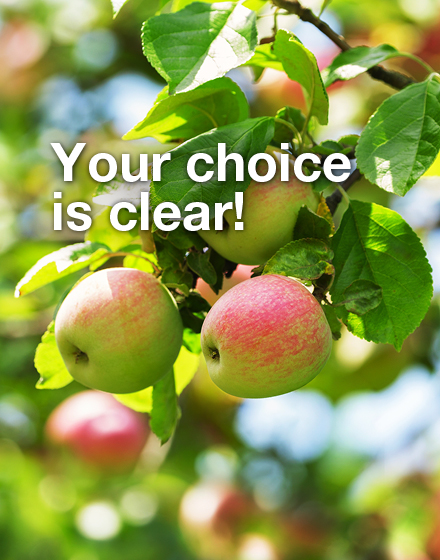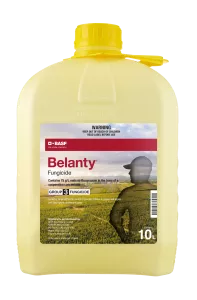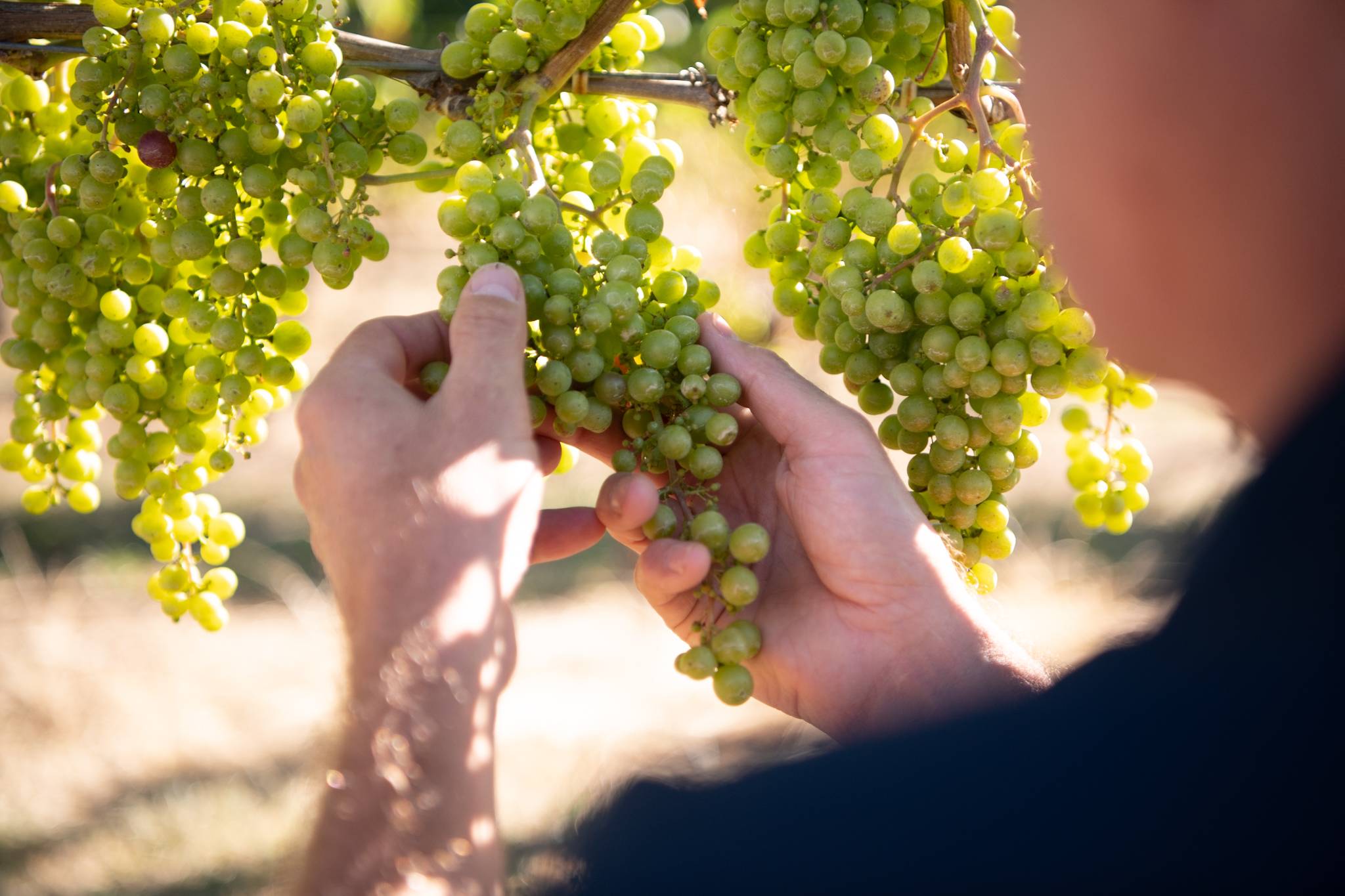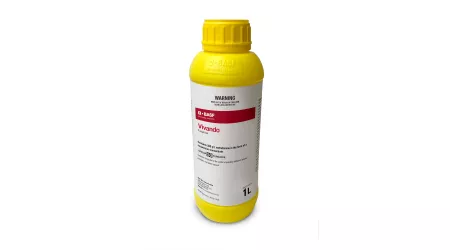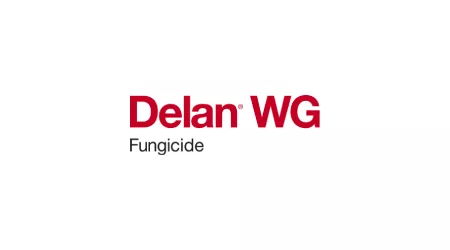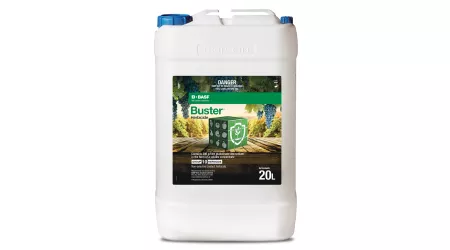Hear more about Belanty and why growers can have confidence in its unique molecule
Key benefits
- Class-leading, flexible control of powdery mildew in grapes and apples and black spot in apples and pears
- Molecular flexibility in the enzyme pocket to improve cellular penetration and binding to the demethylase enzyme
- Advanced formulation that enables rapid uptake and lasting residual control
- Superior protection of existing foliage along with strong DMI curative activity
How it works
Group 3 DMI fungicides have been sold in New Zealand for more than 40 years - but Belanty®, with its hybrid ‘isopropanol-azole’ neck, is the first of its type and is unique among DMI fungicides. The triazole ‘head’ of the molecule sits on the slim neck which gives the molecule the flexibility to easily change its shape to better fit the binding pocket of the target enzyme: C 14-demethylase. A better fits means stronger binding in the pocket and strong inhibition of enzyme activity.
Mutated pathogens with reduced sensitivity to DMIs have different shaped enzyme pockets. Standard DMIs without the isopropanol flexibility cannot adapt as easily as Belanty can and are not as effective on the mutated pathogen strains. The greater molecular flexibility of Belanty allows it to bind strongly in the enzyme pocket and gain excellent control of reduced DMI sensitivity pathogens.
The formulation of the Belanty product promotes rapid uptake and enables it to bind much more strongly than other triazoles to the target enzyme.
Questions and Answers from the Field
-
What diseases does Belanty control?
Black spot in apples and pears and powdery mildew in apples and grapes
-
What is Belanty compatible with?
Belanty is compatible with most commonly used fungicides, insecticides and plant growth regulators. Always tank mix with a fungicide from another mode of action group.
-
What is the active ingredient in Belanty?
The active ingredient of BASF’s Belanty is mefentrifluconazole, which is a new innovation in the demethylation inhibitors (DMI) fungicide group.
-
What is the best fungicide for powdery mildew in grapes and apples?
BASF’s Belanty is the best fungicide for controlling powdery mildew in grapes and apples. Belanty’s innovative solution offers excellent control against powdery mildew due to its unique chemical structure and advanced formulation. It can be used in a preventative disease spray program prior to disease infection periods.
-
What is the best fungicide for black spot in apples and pears?
For effective control of black spot in apples and pears, the best fungicide is BASF’s Belanty. Belanty offers superior protection, and the formulation promotes rapid uptake for lasting control of black spot in apples and pears.
-
How do you prevent powdery mildew infection in grapes?
To prevent powdery mildew infections in grapes, Belanty fungicide from BASF is highly recommended. The fungicide should be applied as part of a complete disease control program for powdery mildew. Belanty must be applied preventatively, before the pathogen infects the grapes.
-
What is the best fungicide for apples and pears?
Belanty by BASF is the best fungicide for fruit trees, particularly for controlling black spot and powdery mildew in apples and black spot in pears. Its active ingredient, mefentrifluconazole, provides superior protection and control.
